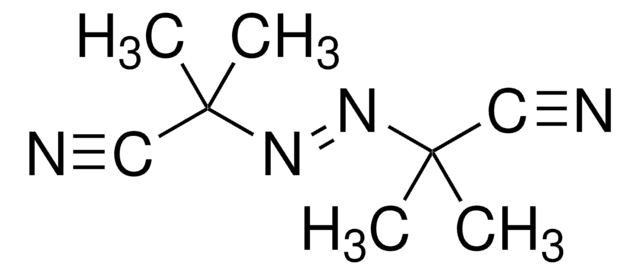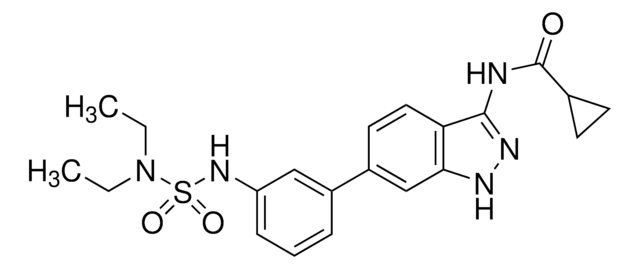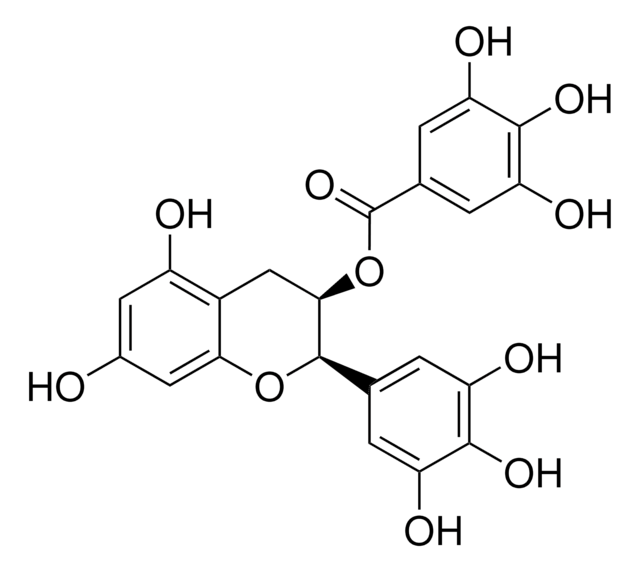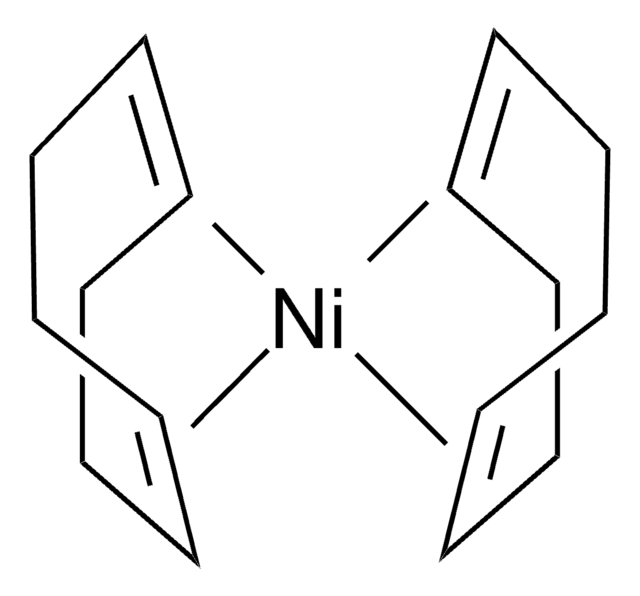SML2377
GSK′962
≥98% (HPLC)
Sinónimos:
1-[(5R)-4,5-Dihydro-5-phenyl-1H-pyrazol-1-yl]-2,2-dimethyl-1-propanone; 2,2-Dimethyl-1-(5(R)-phenyl-4,5-dihydro-pyrazol-1-yl)-propan-1-one, GSK 962, GSK 963 inactive control, GSK 963 negative control, GSK′ 962A, GSK′962A, GSK′963 inactive control, GSK′963 negative control, GSK-962, GSK-962A, GSK962, GSK962A
About This Item
Productos recomendados
Ensayo
≥98% (HPLC)
Formulario
powder
color
white to beige
solubilidad
DMSO: 2 mg/mL, clear
temp. de almacenamiento
2-8°C
cadena SMILES
O=C(C(C)(C)C)N1[C@@H](C2=CC=CC=C2)CC=N1
Acciones bioquímicas o fisiológicas
Código de clase de almacenamiento
11 - Combustible Solids
Clase de riesgo para el agua (WGK)
WGK 3
Punto de inflamabilidad (°F)
Not applicable
Punto de inflamabilidad (°C)
Not applicable
Elija entre una de las versiones más recientes:
Certificados de análisis (COA)
Lo sentimos, en este momento no disponemos de COAs para este producto en línea.
Si necesita más asistencia, póngase en contacto con Atención al cliente
¿Ya tiene este producto?
Encuentre la documentación para los productos que ha comprado recientemente en la Biblioteca de documentos.
Nuestro equipo de científicos tiene experiencia en todas las áreas de investigación: Ciencias de la vida, Ciencia de los materiales, Síntesis química, Cromatografía, Analítica y muchas otras.
Póngase en contacto con el Servicio técnico






